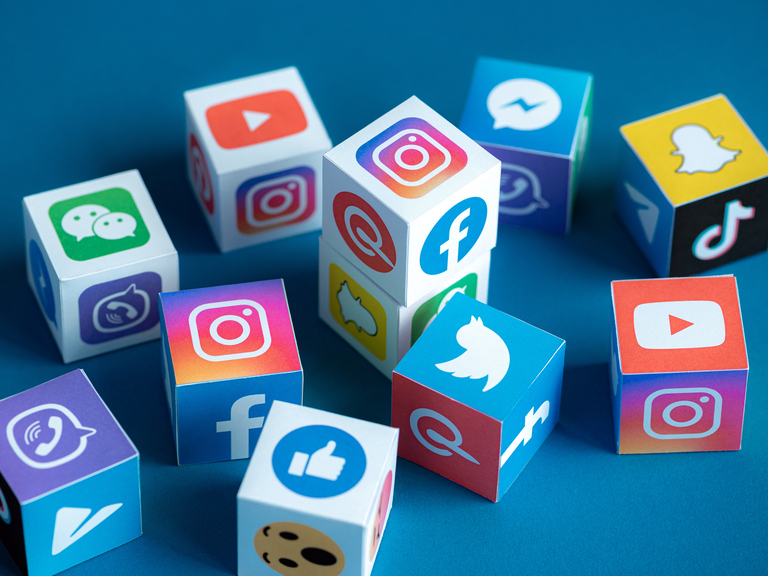One of the rising trends of the contemporary world is certainly the increasing impact of social media platforms on society. The critical role of social media has been observed through a number of dynamics, especially in terms of the changing features of state-citizen relationships, the density of digitalization of economic interactions and businesses, and the shift to virtual and hybrid education tools.
The “World Wide Web Protocol” was developed in 1991, and the use of the Internet network in homes dates back to 1998. Currently, more than 2.5 billion people around the world use the Internet. Today, the Internet is used not only for data flow but also for various activities. Since the early 1980s, the novelties brought by the globalization process and the increasing importance of technology have made the Internet gain a more central role in daily lives. In parallel to that, social media has become more significant in terms of daily life, finances, education, politics etc. Social media platforms have now become of key importance for an ordinary citizen to interact with political elites and obtain information that has not been covered by conventional media.
Manuel Castells has been one of the first thinkers to grasp the concept of the internet. He provided studies that offer analysis to understand the change in social dynamics, globalization, and communication. Emphasizing that the society we live in today is not like the past, Castells analyzed the change with several new theoretical considerations such as “network society”.
Castells in his work titled The Information Age: Economy, Society, and Culture which is a trilogy of books; The Rise of the Network Society (1996), The Power of Identity (1997), and End of Millennium (1998) explained his new theoretical perspectives. Castells defined his concept of the network society as “a new emerging society that is connected by ubiquitous information and information technologies”. Castells argued that networks which are decentralized structures represent the organizational logic of society.
Confirming the arguments put forward by Castells, with the 2000s, great developments have been seen in information and technology fields and ultimately in the societal field. As a result of the developments in information technologies, social media platforms have started to play an important role in state-society relations in addition to intra-state and inter-state relations.
Thanks to social media, during the Arab Spring, the protest movements quickly spread in many countries in the region. Social media (new media) paved the way for people with similar views to come together and become easily organized and mobilized. Social media tools such as Twitter can be used effectively to mobilize citizens as seen in the Arab Spring.
According to a report published by Pew Research Center, social media networks were crucial in organizing the activists, specifically in Egypt, and in parallel to that, civil society leaders in the Arab region emphasized the role of “the internet, mobile phones, and social media” in the protests. As an important finding regarding social media and protest movements, Wolfsfeld et. al (2013) argues that “a significant increase in the use of the new media is much more likely to follow a significant amount of protest activity than to precede it.” Their findings show that social media will become more critical in the future.
Today, almost every event has a reflection on social media networks. Furthermore, economic relations are becoming digital; people do not need to go to shopping malls and spend hours instead they use social media like Instagram as an effective tool to find and buy goods and services they need. Brands promote their products through social media and can easily reach millions of people.
From an educational point of view, it can be said that social media helps students to acquire up-to-date information easily and practically despite some disadvantages. Students are able to contribute to their academic skills at no cost through the online conferences and seminars they join via social media platforms. With regard to educators, social media tools are as important for educators as they are for students. Today, practices such as course plans can be performed more efficiently through a database by using social media networks.
During the Coronavirus pandemic process, in-person education was suspended and digital tools were employed almost all over the world. The shift to online education has made it crystal-clear that social media platforms also have a major role in the educational field.
On the other hand, artificial intelligence (AI) today plays a major role and social media is one of the areas where this impact is critical. According to Statista, the number of active social media users worldwide was 4.26 billion as of 2021. AI tools help enhance features of social media platforms including text and visual content creation, ad management, influencer research and social media monitoring etc.
For example, an article published in Forbes says that AI-powered tools in ad management can help “analyze hundreds or thousands of ad targeting and budget variations, find and segment audiences, make ad creative, test ads, and improve speed and performance in real-time to get the best results”.
The ever-changing nature of technology including the emergence of AI-generated tools such as CHATGPT makes social media one of the most impactful mass communication tools. It is not a surprise to see that the future of social media is very hard to predict to what extent it will increase its role.
References
Castells, M. (1999). The Information Age Vol 1-3, Wiley-Blackwell.
Forbes, (March 16, 2023). How Al transforms social media available on https://www.forbes.com/sites/forbestechcouncil/2023/03/16/how-ai-transforms-social-media/?sh=2fb2f8e31f30
Pew Research Center, (November 28, 2012). The role of social media in the Arab Springs, available on https://www.pewresearch.org/journalism/2012/11/28/role-social-media-arab-uprisings/
Statista, (Feb. 13 2023). Number of social media users worldwide from 2017 to 2027(in billions), available on https://www.statista.com/statistics/278414/number-of-worldwide-social-network-users/
Wolfsfeld G. et. al. (2013). Social Media and the Arab Spring: Politics Comes First, available at https://journals.sagepub.com/doi/pdf/10.1177/1940161212471716

